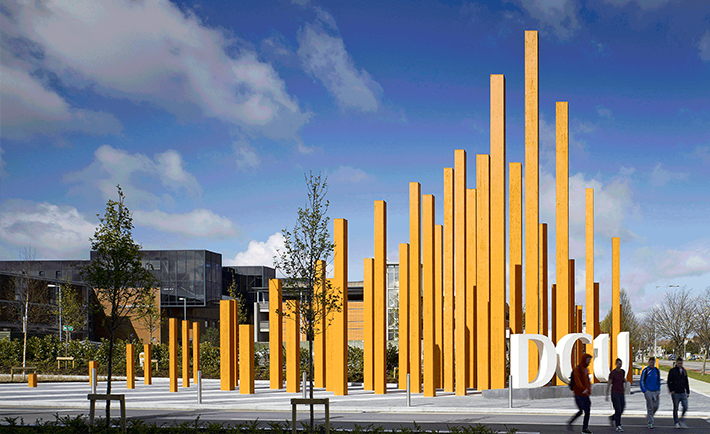
DCU will develop “creative, analytical, enterprising and socially responsible citizens” by 2016 if it is to meet an agreement with the Higher Education Authority (HEA) published this week.
The university aims to build stronger community and industrial links in order to differentiate itself from other Irish colleges and secure HEA funding, which under the agreement can be cut by up to 10 per cent if goals aren’t met.
The college imagines it will be “recognised internationally as a research-intensive, globally-engaged University of Enterprise” by the end of 2016, with 65 per cent of staff being “research active”, an increase of 15 percentage points on the current figure.
DCU aims to become a “21st Century Digital Campus”, increasing the number of courses with online elements from 8 per cent to 60 per cent. The college will also introduce online portfolios for students that will “record and reflect on the aptitudes developed by them”.
DCU plans to bring the numbers of disadvantaged students entering the institution through HEAR and Access programmes to 9 per cent of the first year population, an increase of 2.2 percentage points from 2010/11’s 6.8 per cent of new entrants.
Working alongside NUI Maynooth, Dundalk IT and Athlone IT, the college hopes to form a regional “cluster” of higher level institutions that will improve access, transfer and progression between the colleges.
By establishing partner universities globally, DCU also plans on doubling the number of non-EU students attending the university to 800 students.
DCU will receive funding of €219,000 if it meets the plan. University College Dublin has been allocated the most funding (€670,000) if its plan to play “a critical role in Ireland’s economic, social and cultural development” with ambition “stretching beyond these shores” is fulfilled.
The agreement with the HEA comes after a year of dialogue between the authority and Ireland’s higher level intuitions. It is the first time colleges have had to set out such plans.
Mark Hogan

Leave a Reply